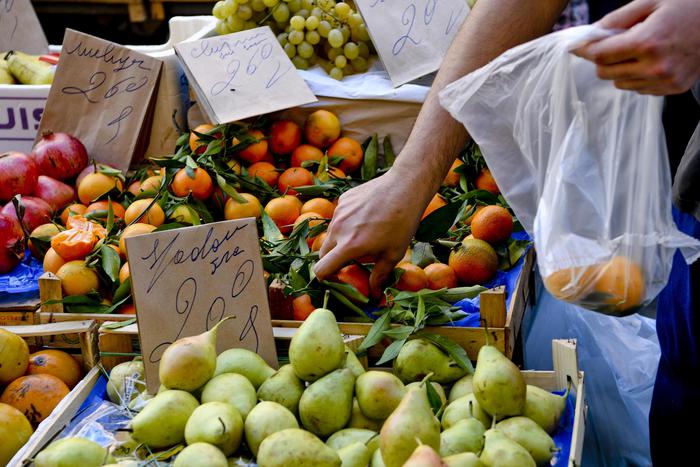The secretary general of the OECD, Mathias Cormann ERIC PIERMONT (AFP)
The human and economic cost of the war in Ukraine is still very uncertain and will largely depend on how far the Russian offensive extends in the neighboring country.
But there are already some first estimates and they are not at all flattering, neither human nor economically.
The war is going to cost the world at least one percentage point in its growth this year - and up to 1.4 points to the eurozone - as well as an added 2.5 points in the already high global inflation, according to a first estimate from the Organization for Economic Co-operation and Development (OECD).
The Paris-based body also warns of significant humanitarian consequences.
On the one hand, the impact of the high number of Ukrainian refugees, especially in Europe, to which he asks for "solidarity to face the challenge".
On the other, the one that can cause a rise in the prices of products such as wheat in vulnerable populations, which in the long run could also cause new migratory flows if aid is not provided and policies are not adjusted to face this added burden.
“Just when the world economy seemed to be emerging from a two-year crisis due to the coronavirus pandemic, a brutal and devastating war has broken out in Europe,” lamented the chief economist of the OECD, Laurence Boone, presenting this Wednesday the
Evaluation of the economic and social impacts and political implications of the war in Ukraine
.
The document proposes to respond with immediate measures, such as studying the establishment of a tax on the “profits that fell from the sky” of electricity companies.
In the longer term, it encourages the acceleration of all those projects that can help "minimize dependence on Russia" in energy matters.
In this sense, Boone specifically alluded to one of the “long-pending” projects, the new gas pipeline between Spain and France, MidCat.
The document presented this Thursday in Paris replaces the traditional quarterly review of the economic perspectives of the organism, which should have been carried out on these dates and which has been parked due to the uncertainty caused by the Russian offensive.
In the absence of more data —and of knowing whether, as many fear, the conflict will be long-lasting or not—, the OECD already warns that “the movements in the prices of raw materials and in the financial markets seen from the beginning of the war could, if sustained, reduce global GDP growth by more than a percentage point in the first year, with a deep recession in Russia, and boost global inflation by about 2.5 percentage points.”
Against this background, the Secretary General of the OECD, Mathias Cormann, has asked to “keep a cool head” when examining a response from both the markets and the governments, to whom he asks for “sensitive actions both in the short and long term”. long term".
The appeal is especially pressing for the European Union, the region most affected by the war in Ukraine, especially for its energy market, highly dependent on Russia both for its crude oil imports (27% buy it from the Russian market), and natural gas (41%) and solid fuel (47%).
“In these dire circumstances facing the European energy market, I strongly recommend an open mind in re-examining the regulatory framework, including a re-evaluation of the market structure and design to ensure energy security and affordability, while maintaining energy targets. climate change”, said the Australian.
Relying on the 10-point plan of the International Energy Agency (IEA), the OECD recommends in this sense a "well-designed and carefully targeted fiscal support" that allows reducing the negative impact of the war on growth with only a " small boost to inflation.
Something that some countries, especially European ones, could finance with the "taxation of exceptional profits" of electric companies that, as Cormann recalled, are expected to reach 200,000 million euros.
“There is an opportunity to help fund temporary targeted measures and to share the impact of rising electricity prices on vulnerable households through temporary one-off benefit tax measures directly tied to current market design,” he noted.
In terms of food, another source of concern due to the strong dependence of Ukraine and Russia on raw materials such as wheat, the OECD recommends, beyond increasing its own production, "refrain from protectionist measures" and provide "multilateral aid" to countries most affected by the lack of Russian and Ukrainian supplies.
Helping Ukrainian refugees, a "moral duty"
The war in Ukraine has already caused the largest flow of refugees in Europe since the Second World War – 3 million Ukrainians have already fled their country and the EU estimates that they could exceed 6.5 million.
Offering them emergency humanitarian aid, but also accommodation, medical coverage and schools for the children, as well as helping them "quickly find a job to survive", is a "moral obligation", Boone stressed.
But this will entail an economic burden that will also have to be shared, warns the OECD.
In this sense, the report recalls that in the previous refugee crisis, in 2015 and 2016, the agency estimated that "the cost of processing and accommodating asylum seekers in the first year was estimated at around 10,000 euros per request", a a figure that a German study even increased to 12,500 euros per refugee.
"At this level, the influx of 3 million refugees seen so far could result in a direct cost of at least 0.25% of the European Union's GDP."
The cost will be "much higher" in the countries that receive the refugees, such as Poland, which, Boone recalled, is "doing much more without the same means" than other countries.

/cloudfront-eu-central-1.images.arcpublishing.com/prisa/HHMWBQNGUH7YUIIG23ADNJX4TE.jpg)











